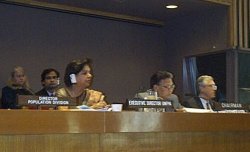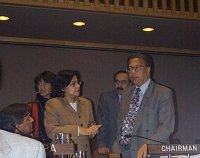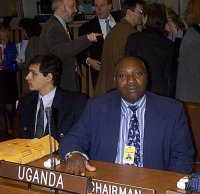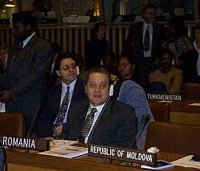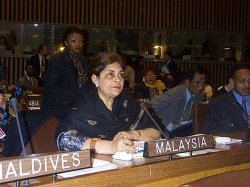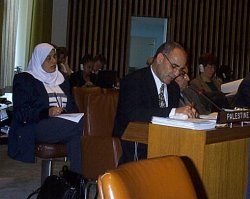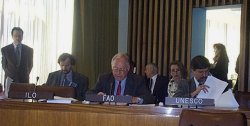|
CPD-32 |
32nd
Session of the UN Commission on Population and Development
22-31
March, 1999
ICPD
+5 Preparatory Meeting
24-31 March, 1999
|
BRIEFING for Thursday, 25 March |
|
Delegates at the ICPD+5 PrepCom met in Plenary in the morning and afternoon
to hear formal statements by countries, intergovernmental and non-governmental
organizations on preparations for the Special Session. The Working Group
to negotiate proposals for action for further implementation of the
POA did not meet due to the G-77/China's need to hold further consultations.
|
|
Photo and RealAudio highlights |
| UNFPA Executive Secretary Nafis Sadek (left) and Vice-Chair Anwarul Chowdhury (Bangladesh) |
|
The
Bureau for ICPD+5 PrepCom:
|
|
Chair
Robert Lewis Cliquet (Belgium)
|
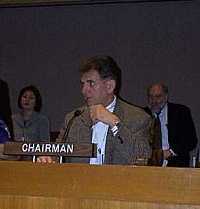 |
| Vice-Chair Anwarul Chowdhury (Bangladesh) |
|
Vice-ChairArmi
Heinonen (Finland)
|
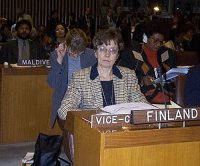
|
| Vice-Chair Jotham Musinguzi (Uganda) |
|
Vice-Chair Elza Berquo (Brazil) Vice-Chair Alexandru Niculescu (Romania) |
 |
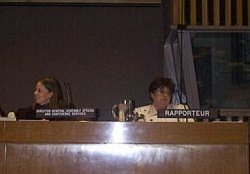 |
|
Other
Bureau members not pictured: Vice-Chairs Ross Hynes (Canada), Jack Wilmot
(Ghana), Patricia Durrant (Jamaica) and Ryu Yamazaki (Japan)
|
|
Delegates gave formal statements in Plenary on preparations for the Special Session: |
|
| Malaysia noted that the recent economic crisis has negatively affected some countries' ability to implement the POA. He urged that, when considering the mobilization of resources, priority be given to countries in need to ensure that achievements are not jeopardized. | |
|
|
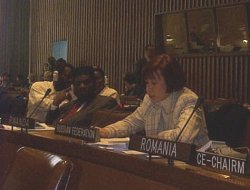 |
| Palestine identified the lack of financial resources, an unfavorable political environment and difficult communications as obstacles to policy implementation. He recommended: increasing investment in training; building cross-sectoral partnerships; mobilizing financial resources; and reforming relevant legislation. | |
|
|
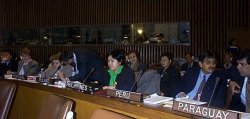
|
|
|
© Earth Negotiations Bulletin, 1999. All rights reserved.

